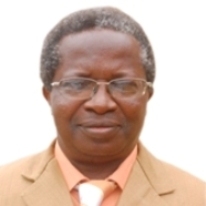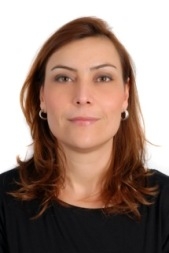
The Society of Toxicology has selected two toxicology leaders in their respective countries to participate in the 2016 SOT Global Senior Scholar Exchange Program (GSSEP), Oladipo Ademuyiwa from the Federal University for Agriculture, Nigeria, and Wafa Hassen from the High Institute of Biotechnology of Monastir, Tunisia.
SOT members with similar research and training emphases at established toxicology programs are invited to apply to be the GSSEP Host for one of these Scholars. The program provides up to $15,000 for each pair, with up to $10,000 travel support for the Senior Scholar and $5,000 for the Host. Full details about the program, and more about these scholars, are found on the Global Senior Scholar Exchange Program web page that includes the Host application. The Host applications will be accepted until September 15, 2015.
 2016 SOT Global Senior Scholar Oladipo Ademuyiwa, Nigeria
2016 SOT Global Senior Scholar Oladipo Ademuyiwa, Nigeria
Oladipo Ademuyiwa, PhD, is the Department of Biochemistry chair and professor of biochemical toxicology at the Federal University of Agriculture in Abeokuta, Nigeria. Toxicology is an active research area in the Department of Biochemistry although there is not an existing curriculum in Toxicology. The department has 12 faculty and 20 Master’s and 15 PhD students; students with an interest in toxicology are directed to research in that area.
The research program is centered on investigating mechanistic bases of the effects of xenobiotics on cellular metabolism in both humans and animals using perturbations in activities of cellular enzymes and concentrations of metabolites in specific metabolic pathways as metrics of toxicity. Xenobiotics of concern are metals with potential occupational and environmental exposure, specifically lead, arsenic, cadmium, and mercury. In view of the increasing prevalence of metal pollution in developing nations such as Nigeria, a major research concern of the department is assessing the risks posed to humans, not only those who are occupationally exposed to these metals, but also the general population (particularly children).
The department will welcome participating in an international collaborative to develop core protocols and build capacity in the area of risk assessment in order to strengthen research efforts to study the impacts of exposure to metals. As a result of the Global Senior Scholar Exchange, Dr. Ademuyiwa anticipates that the department will be able to build a toxicology curriculum at both the undergraduate and graduate levels and will increase the number of toxicologists in the country to build capacity to address human and ecological health concerns caused by chemical exposure. Additionally, these experts would then assist in the formulation of policies to produce a safer and healthier environment in Nigeria, including a national framework on toxicological issues.
 2016 SOT Global Senior Scholar Wafa Hassen, Tunisia
2016 SOT Global Senior Scholar Wafa Hassen, Tunisia
Wafa Hassen, PhD, is a Lecturer in the Department of Cellular Physiology and Toxicology at the High Institute of Biotechnology of Monastir, Tunisia. There are 14 faculty members in the department and 4 undergraduate tracks, with 5 toxicology courses offered as part of those curricula. Faculty research interests include toxicology and antitumor activity of polypeptides in scorpion and snake venom, medicinal herb extracts, organ toxicity due to metals, pesticides, and marine toxicology related to Tunisian coastal contamination.
Dr. Hassen’s research focuses on mechanisms of myeloma drug resistance and human disease related to mycotoxins in food. The economical and social contexts along with the alimentary habits and lifestyle make the Tunisian population prone to many environmental diseases (i.e., cancer, chronic organ disease). The Institute includes several medical universities and Monastir is a major medical center, so conditions are favorable to further develop much needed toxicological research related to public health diseases including human reprotoxicity and endocrine perturbations, immunotoxicity, carcinogenesis, etc.
In addition to bolstering research efforts, the Global Senior Scholar Exchange might support the High Institute of Biotechnology programs by assisting in the development of a more formal toxicology curriculum and a Master’s degree in toxicology, and by providing additional training in toxicology for the faculty teaching those courses. Dr. Hassen has been involved in a number of research exchanges in Spain and France as well as active in the Tunisian Society of Toxicology (ATT). Forging additional connections with SOT and between the members of SOT and ATT, as well as with the Host institution that is selected, also would strengthen toxicology in Tunisia.
The Education Committee looks forward to receiving excellent Host applications for exchanges that will continue the successes of this program. Previous recipients can be found in the Historical Archive of SOT Awardees.